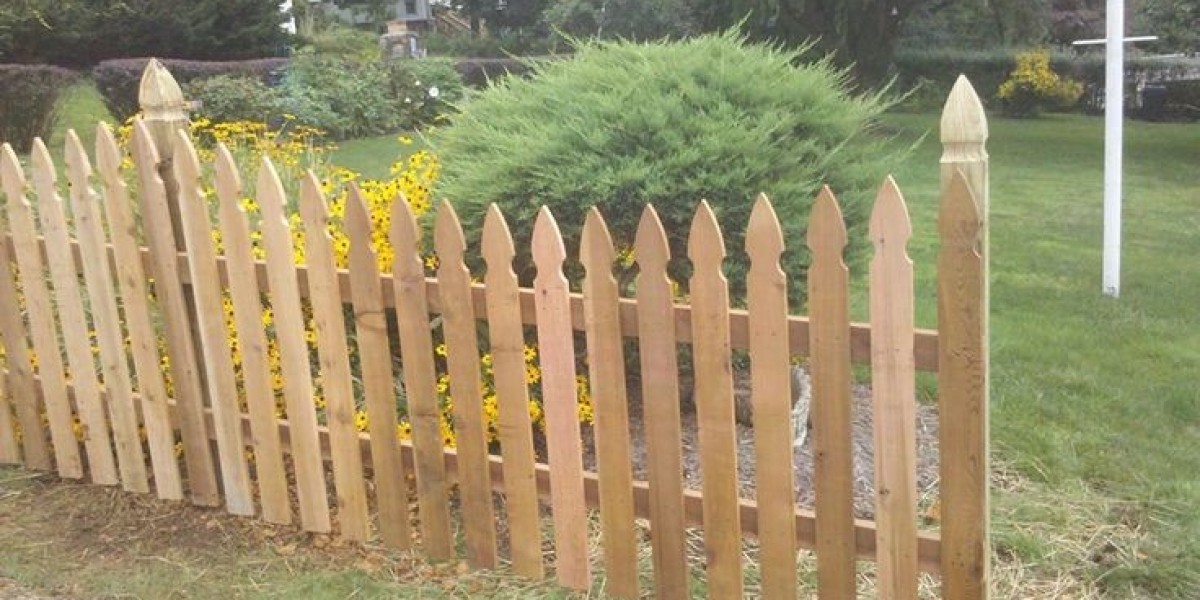Cedar fencing in Delaware has been a preferred choice for homeowners and property managers for decades due to its natural beauty, durability, and resilience. What sets cedar apart from other fencing materials is not just its appearance but the science behind its longevity. Whether you’re installing a new fence or upgrading an old one, understanding the properties of cedar can help you make an informed decision about your fencing needs.
In this post, we’ll explore the unique features of cedar wood, the scientific reasons behind its long lifespan, and how it stands up against harsh weather conditions. Cedar fencing is not just a practical solution; it’s a sustainable investment that combines style and strength.
Why Cedar Fencing Is a Durable Choice
Fence services in Delaware are widely regarded for its durability, but what makes it stand out? The answer lies in the wood’s natural properties. Cedar contains oils and compounds that protect it from decay, pests, and the elements. These properties make cedar an exceptional choice for fencing in Delaware’s varied climate.
The Unique Properties of Cedar Wood
1. Natural Resistance to Decay and Rot
Cedar contains natural preservatives called thujaplicin, which inhibit the growth of fungi and bacteria. These compounds act as a natural barrier against rot and decay, even in damp environments.
Unlike untreated wood that requires chemical treatments to resist decay, cedar naturally withstands these threats, making it an environmentally friendly and low-maintenance choice for fencing.
2. Insect-Repellent Qualities
Cedar’s aromatic oils are not just pleasant to the human nose—they also repel many insects, including termites. These natural oils serve as a built-in pest deterrent, reducing the need for chemical pest control treatments.
This insect-resistant quality is particularly valuable in areas like Delaware, where pest infestations can be a concern.
3. Exceptional Weather Resistance
Cedar wood is dimensionally stable, meaning it resists warping, shrinking, and swelling caused by moisture. This makes cedar fencing an excellent choice for areas that experience fluctuating temperatures and humidity levels.
In Delaware, where summers can be humid and winters bring freezing temperatures, cedar fencing holds up better than many other wood options.
4. Lightweight and Strong
Cedar wood strikes a perfect balance between being lightweight and durable. Its lightweight nature makes it easier to handle during fence installation in Delaware, while its strength ensures it can withstand years of use.
Cedar vs. Other Fencing Materials
When comparing cedar to other fencing materials like pine, spruce, or vinyl, cedar consistently outperforms its competitors in terms of durability and longevity.
Pine and Spruce: While these woods are more affordable, they require chemical treatments to resist decay and pests, and they lack the natural resilience of cedar.
Vinyl: Though vinyl fences are low-maintenance, they don’t offer the same natural aesthetic appeal as cedar. Additionally, vinyl can become brittle in extremely cold temperatures.
Cedar fencing provides a perfect combination of natural beauty, durability, and environmental friendliness, making it a superior choice for many homeowners.
Benefits of Cedar Fencing in Delaware
For homeowners in Delaware, cedar fencing is a smart investment. The state’s climate features a mix of humid summers and cold winters, which can take a toll on traditional wooden fences. Cedar, however, is well-suited to withstand these challenges.
1. Handles Humidity with Ease
Delaware’s humid summers can cause many types of wood to warp or swell. Cedar’s dimensional stability ensures that it retains its shape and integrity, even in high humidity.
2. Stands Strong Against Snow and Ice
In winter, freezing temperatures and ice buildup can weaken many fencing materials. Cedar’s natural resistance to moisture penetration helps it remain durable and strong throughout the colder months.
3. Aesthetic Appeal for Varied Properties
From suburban neighborhoods to rural properties, cedar fencing complements a wide range of architectural styles and landscapes. Its natural beauty enhances the overall look of any property, making it a popular choice in Delaware.
Caring for Your Cedar Fence
While cedar fencing is naturally durable, proper care can extend its lifespan even further. Here are a few maintenance tips to keep your cedar fence in top condition:
1. Apply a Protective Sealant
Although cedar is naturally resistant to decay, applying a clear sealant can enhance its moisture resistance and protect it from UV rays, preventing discoloration over time.
2. Regular Cleaning
Dirt and debris can accumulate on your fence, diminishing its appearance. Cleaning your cedar fence with a mild detergent and water will keep it looking fresh.
3. Inspect for Damage
Periodically check your fence for any signs of wear, such as cracks or loose boards. Prompt repairs can prevent minor issues from becoming major problems.
Cedar Fencing and Sustainability
Cedar is not only a durable fencing material but also an environmentally friendly choice. Here’s why:
Renewable Resource: Cedar is a sustainably harvested wood, and its natural longevity reduces the need for frequent replacements, minimizing waste.
Biodegradable: Unlike synthetic materials, cedar wood is biodegradable, making it an eco-conscious option for fencing.
Frequently Asked Questions (FAQs)
Why does cedar last longer than other types of wood?
Cedar contains natural oils and compounds that protect it from decay, pests, and moisture, making it more durable than untreated woods like pine or spruce.
Does cedar fencing require a lot of maintenance?
Cedar fencing is relatively low-maintenance. Occasional cleaning and applying a protective sealant can help extend its lifespan.
Can cedar fencing withstand Delaware’s climate?
Yes, cedar fencing is an excellent choice for Delaware’s climate. It resists warping in humid conditions and remains durable in freezing temperatures.
How long does a cedar fence typically last?
With proper care, a cedar fence can last 15-30 years or more, depending on environmental conditions and maintenance.
Is cedar fencing environmentally friendly?
Yes, cedar is a renewable and biodegradable resource, making it an eco-friendly fencing option.
Conclusion
Cedar fencing combines natural beauty with unparalleled durability, making it a top choice for homeowners looking for a long-lasting, low-maintenance solution. Its natural resistance to decay, pests, and weather ensures that your fence will remain strong and beautiful for years to come, even in Delaware’s challenging climate.
When it’s time to install a cedar fence, trust the experts at JPM Home Services .Call (302) 598-6297 to discuss your fencing needs and discover how a cedar fence can transform your property.









